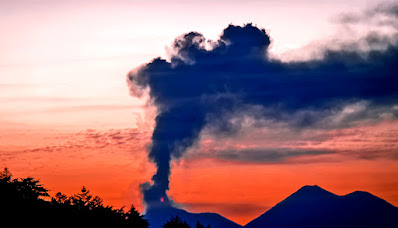VOLCANOES MAY HAVE SHAPED OXYGEN’S EVOLUTION ON EARTH
Volcanic gases and the planet's mantle may have held back oxygen's rise on Planet, scientists say.
Oxygen first built up in the Earth's atmosphere about 2.4 billion years back, throughout the Great Oxidation Occasion.
A enduring challenge has been that geologic hints recommend very early germs were photosynthesizing and pumping out oxygen numerous countless years before after that. Where was everything going?
"IF CHANGES IN THE MANTLE CONTROLLED ATMOSPHERIC OXYGEN, AS THIS STUDY SUGGESTS, THE MANTLE MIGHT ULTIMATELY SET A TEMPO OF THE EVOLUTION OF LIFE…"
bola populer perbandingan bakayoko dan matic"This study revives a classic hypothesis for the development of atmospheric oxygen," says lead writer Shintaro Kadoya, a postdoctoral scientist in planet and space sciences at the College of Washington.
"The information shows that an development of the mantle of the Planet could control an development of the atmosphere of the Planet, and potentially an development of life."
Multicellular life needs a focused provide of oxygen, so the build-up of oxygen is key to the development of oxygen-breathing life on Planet."If changes in the mantle controlled atmospheric oxygen, as this study recommends, the mantle might eventually set a tempo of the development of life," Kadoya says.
The new work improves a 2019 paper that found the very early Earth's mantle was much much less oxidized, or included more compounds that can respond with oxygen, compared to the modern mantle. That study of old volcanic rocks, up to 3.55 billion years of ages, were gathered from websites that consisted of Southern Africa and Canada.
The new paper takes a look at how changes in the mantle affected the volcanic gases that escaped to the surface.
The Archean Eon, when just microbial life was extensive on Planet, was more volcanically energetic compared to today. Volcanic eruptions are fed by magma—a mix of molten and semi-molten rock—as well as gases that escape also when the volcano isn't emerging.
Some of those gases respond with oxygen, or oxidize, to form various other substances. This happens because oxygen has the tendency to be starving for electrons, so any atom with a couple of freely held electrons responds with it. For circumstances, hydrogen launched by a volcano combines with any free oxygen, removing that oxygen from the atmosphere.
The chemical make-up of Earth's mantle, or softer layer of shake listed below the Earth's crust, eventually manages the kinds of molten shake and gases originating from volcanoes. A less-oxidized very early mantle would certainly produce more of the gases such as hydrogen that integrate with free oxygen. The 2019 paper shows that the mantle became slowly more oxidized from 3.5 billion years back to today.



